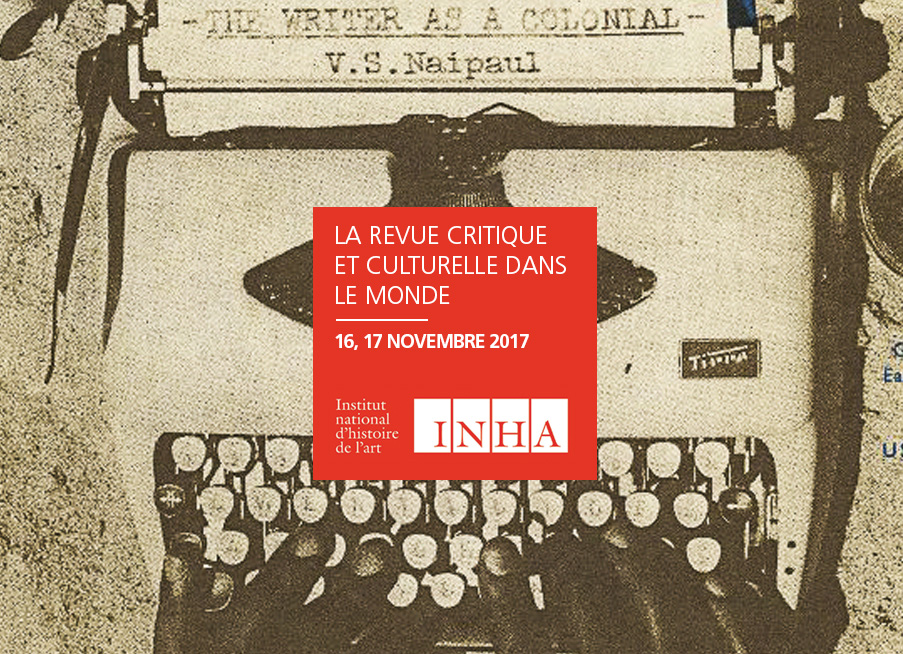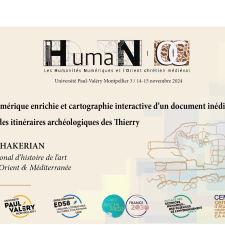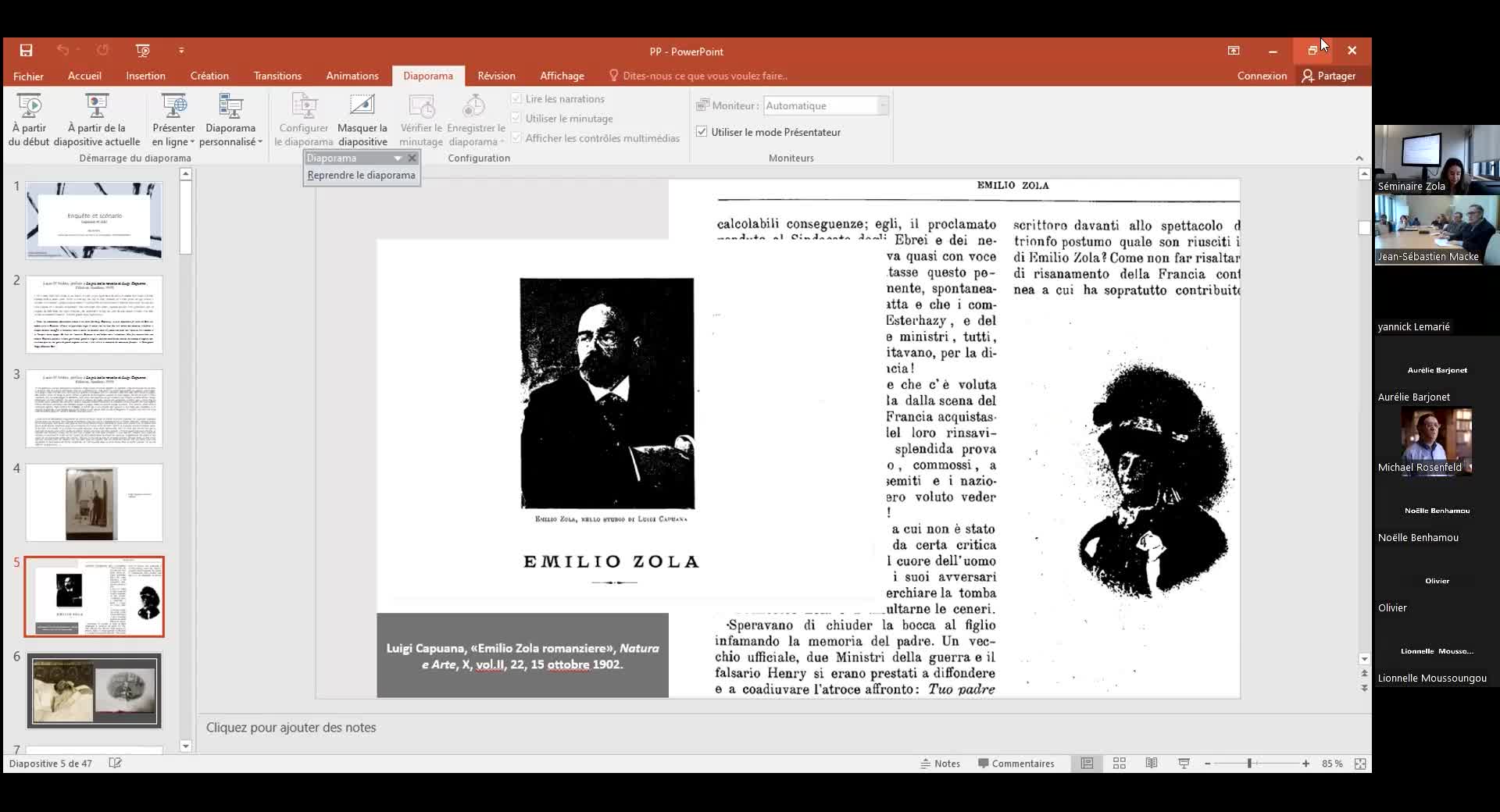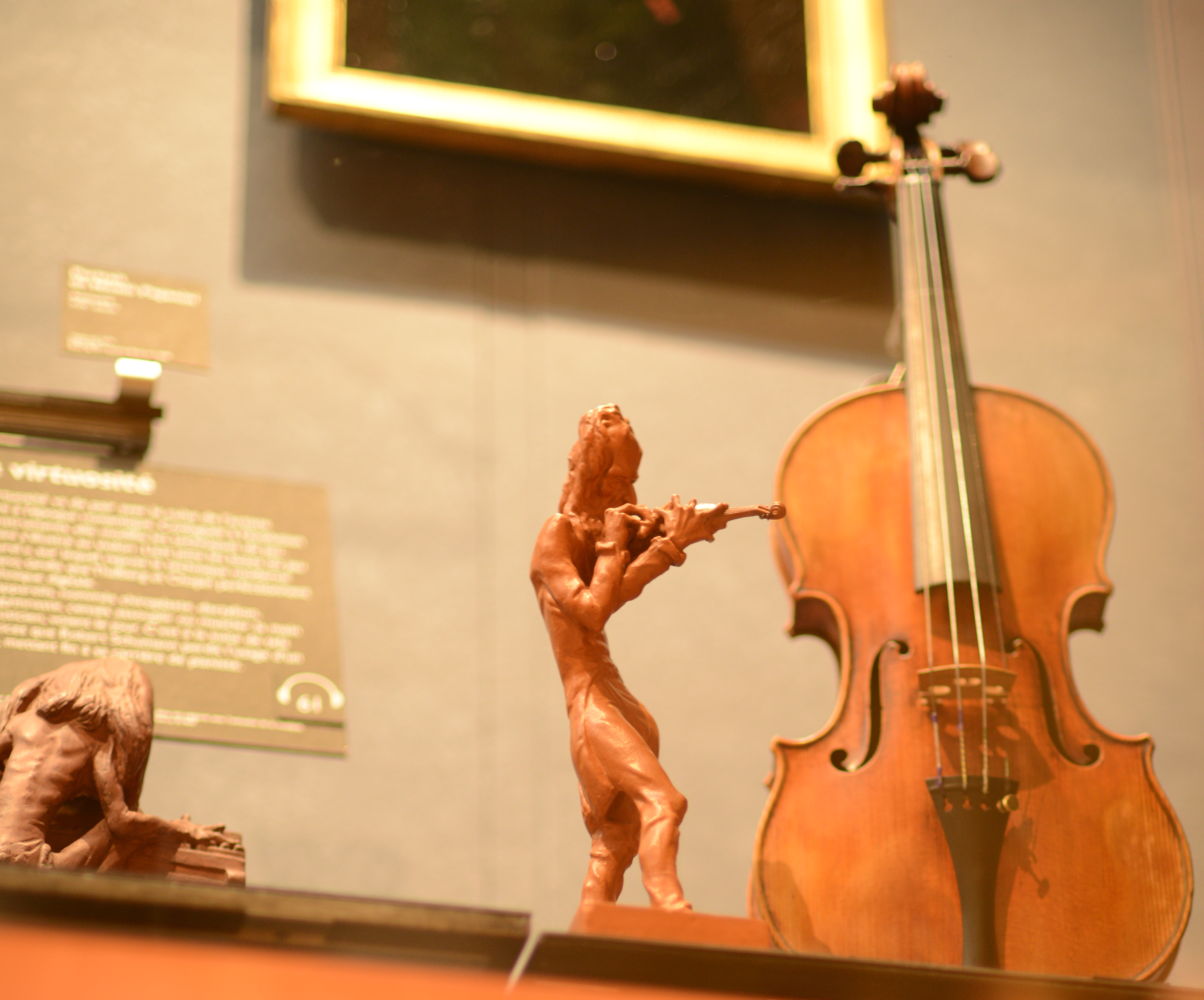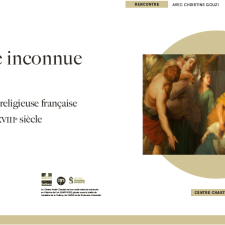Notice
Journalism and resistance in the press of Portuguese Africa - Isadora de Ataide Fonseca (5/17)
- document 1 document 2 document 3
- niveau 1 niveau 2 niveau 3
Descriptif
Le colloque international "La revue critique et culturelle dans le monde. Révolution, subversion et émancipation du XVIIIè siècle à nos jours" fait partie d'un projet de recherche conduit à l'INHA dans le cadre du domaine "Histoire de l'art mondialisée".
▬▬▬▬
16 novembre 2017
SESSION IIPrésentée par Lotte Arndt et Mica Gherghescu - Rachel Danon (Université Peleforo Gon Coulibaly)
La fabrique du lecteur dans les revues périodiques coloniales du XVIIIe siècle : le cas de la Gazette des Petites Antilles- Isadora de Ataíde Fonseca (Université de Lisbonne)Journalism and resistance in the press of Portuguese Africa
----
Journalism and resistance in the press of Portuguese AfricaIsadora de Ataíde FonsecaTo discuss and reflect on the press as a privileged field of resistance of the African elites to colonial project in the territories under Portuguese domination is the main goal of this communication. The African press through journalism developed a role of resistance and advocacy in the Portuguese colonies in Africa between 1870 and 1930. In other words, African ‘intelligentsias’ have made the press a space and a tool of resistance to colonialism. In Angola and Cape Verde the African press developed between 1870 and the early years of the 1920s. In Mozambique and Sao Tome and Principe, the African journalism gained prominence in the Republican period and survived until the mid-1930. In Guinea, there was not an African press. So, this study presents a comparative perspective in the context of African Portuguese Empire that can explain those differences. The similarities prevailed in the performance of the African press. The main issues in journalistic agenda were the requirement of equal rights between Africans and Europeans; the subject of the independence of the colonies and the critic of colonialism and its program. In the case of Portuguese Africa, colonial imperialism led to the awakening of national consciousness among the African people and the desire for sovereignty, which led the African elites to make the journalism a privileged space to resist to colonial program. Thus, the situation of the native elites combined to liberal ideas, the new printing technologies and the development of capitalism, were decisive elements in the emergence of the 'imagined communities', an essential step in the process of modernization.
En savoir plus : http://bit.ly/INHA-Coll16-17Nov
Dans la même collection
-
Le rôle des revues dans les processus d'autonomisation et d'internationalisation du champ intellect…
Le colloque international "La revue critique et culturelle dans le monde. Révolution, subversion et émancipation du XVIIIè siècle à nos jours" fait partie d'un projet de recherche conduit à l'INHA
-
La revue : un espace de luttes, un espace en lutte - Devika Singh et Tiphaine Samoyault (2/17)
Le colloque international "La revue critique et culturelle dans le monde. Révolution, subversion et émancipation du XVIIIè siècle à nos jours" fait partie d'un projet de recherche conduit à l'INHA
-
« The Unity is Submarine » – Saisir les enjeux de l’Atlantique caribéenne par les images et les mot…
Le colloque international "La revue critique et culturelle dans le monde. Révolution, subversion et émancipation du XVIIIè siècle à nos jours" fait partie d'un projet de recherche conduit à l'INHA
-
Electronic Textures - Annett Busch (7/17)
Le colloque international "La revue critique et culturelle dans le monde. Révolution, subversion et émancipation du XVIIIè siècle à nos jours" fait partie d'un projet de recherche conduit à l'INHA
-
Les revues de Vigo : vecteurs d’échanges et laboratoires artistiques - - Daniel Iglesias et Marie B…
Le colloque international "La revue critique et culturelle dans le monde. Révolution, subversion et émancipation du XVIIIè siècle à nos jours" fait partie d'un projet de recherche conduit à l'INHA
-
Le monde de l’art en revues : généalogie d’un objet de recherche - Anne Lafont (3/17)
Le colloque international "La revue critique et culturelle dans le monde. Révolution, subversion et émancipation du XVIIIè siècle à nos jours" fait partie d'un projet de recherche conduit à l'INHA
-
Perspective en temps de crise - Rasha Salti (écrivaine et commissaire indépendante) – entretien ave…
Le colloque international "La revue critique et culturelle dans le monde. Révolution, subversion et émancipation du XVIIIè siècle à nos jours" fait partie d'un projet de recherche conduit à l'INHA
-
la revue Metronome (1996-2007) - Zahia Rahman et Clémentine Deliss (09/17)
Le colloque international "La revue critique et culturelle dans le monde. Révolution, subversion et émancipation du XVIIIè siècle à nos jours" fait partie d'un projet de recherche conduit à l'INHA
-
Les revues culturelles au Maroc : Maghreb Art, Souffles, Integral. Entre expérimentation et théoris…
Le colloque international "La revue critique et culturelle dans le monde. Révolution, subversion et émancipation du XVIIIè siècle à nos jours" fait partie d'un projet de recherche conduit à l'INHA
-
La revue Tropiques, un laboratoire culturel de résistance - Lotte Arndt et Dominique Berthet (6/17)
Le colloque international "La revue critique et culturelle dans le monde. Révolution, subversion et émancipation du XVIIIè siècle à nos jours" fait partie d'un projet de recherche conduit à l'INHA
-
La revue Xinyue (1928-1933) : occidentaliste ? - Francesca Dal Lago et Jacqueline Estran (11/17)
Le colloque international "La revue critique et culturelle dans le monde. Révolution, subversion et émancipation du XVIIIè siècle à nos jours" fait partie d'un projet de recherche conduit à l'INHA
-
Introduction - Eric de Chassey et Zahia Rahmani (1/17)
Le colloque international"La revue critique et culturelle dans le monde. Révolution, subversion et émancipation du XVIIIè siècle à nos jours" fait partie d'un projet de recherche conduit à l'INHA
Sur le même thème
-
Edition numérique enrichie et cartographie interactive d’un document inédit : le journal des itinér…
TchakerianSipanaReçues en don par l’INHA en 2017, les archives de Nicole et Jean-Michel Thierry constituent un fonds exceptionnel sur l’art et l’architecture médiévale de la Cappadoce, de l’Arménie et de la Géorgie.
-
Enquête et scénario chez Capuana et Zola
TettamantiValeria- Valeria Tettamanti (Université Clermont Auvergne). « Enquête et scénario chez Capuana et Zola »
-
"Des objets aux idées, la collection comme fabrique du savoir : le cas du Musée Fauvel à Athènes …
"Des objets aux idées, la collection comme fabrique du savoir : le cas du Musée Fauvel à Athènes (1810-1825)" par Alessia Zambon, session 6.4, présidée par Bruno Laurioux et Delphine Carrangeot.
-
Sol, ré, la, mi : une histoire culturelle du violon
ÉchardJean-Philippepar Jean-Philippe Échard, conservateur au Musée de la musique (Cité de la Musique — Philharmonie de Paris).
-
Traduire les avant-gardes soviétiques un siècle après Pourquoi ? Pour qui ? Comment ?
PoznerValérieGuichardBenjaminPerrelCatherineUne rencontre à suivre en direct depuis chez vous ! En écho à l'exposition L'Art dans la vie ! La vie dans les livres !, la BULAC vous propose une rencontre axée sur la problématique de la
-
La belle inconnue. La peinture religieuse française du XVIIIe siècle
GouziChristineLa peinture du XVIIIe siècle est souvent assimilée à la fête galante d’Antoine Watteau, aux nymphes de François Boucher ou bien encore à la peinture néo-antique de Jacques-Louis David. Pourtant, le
-
Le bleu Guimet, une histoire haute en couleur
TarlierCécylGuimetHubertavec Cécyl Tarlier et Hubert Guimet, ancien maire de Fleurieu-sur-Saône, ancien conseiller de la Métropole de Lyon, administrateur du Musée des Confluences de Lyon, auteur de l'ouvrage Jean-Baptiste
-
Chercheurs en ville #24 - L’art contemporain dans la ville
À l’occasion du prochain colloque « Création artistique et territoires », Chercheurs en ville reçoit Nathalie Boulouch, enseignante-chercheure en l’histoire de l’art à l’université Rennes 2 et
-
L'imaginaire artistique homme-machine-prothèse post-1918
RaingevalEmmanuelleEmmanuelle Raingeval, ATER en histoire de l'art contemporain à l'Université de Picardie-Jules-Verne (cette conférence fait suite à une communication scientifique tenue par E. Raingeval tenue lors du
-
Visite guidée du musée de l'Imprimerie, à l'IFAO
En 1907, l’institut quitta ses locaux de la rue Antikhana pour s'installer dans le Palais Mounira. C’est en effet à partir de cette date que le palais Mounira lui offrit son cadre prestigieux et l
-
Exposition Sendas epigráficas
L’exposition Sendas epigráficas est le fruit d’une collaboration entre des chercheurs - spécialistes de l’Antiquité tardive et du Moyen Âge - et des artistes résidents de la Casa de Velázquez. En
-
Les Musées imaginaires d'André Malraux
Saint-CheronFrançois depar François de Saint-Chéron, maître de conférences HDR en littérature contemporaine à Lettres Sorbonne Université.

